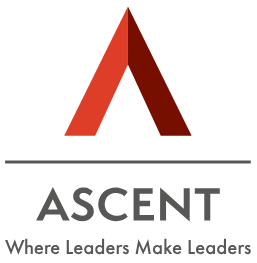Blog
6 Things a Company Should Focus On in Its Growing Years
~ Harsh Mariwala (Chairman Marico Ltd., Founder ASCENT Foundation)
Here are some make-or-break essentials that a company should focus on during their growing years in order to set firm foundations for the future.
Need for growth
Some businesses become viable only when there are economies of scale. Without scale, some businesses become unviable or unsustainable. Growth should not be seen only in the context of promoter satisfaction, profits, etc. However, there are other fundamental reasons why growth and scaling up is critical to survival. In fact, the growth of your organisation is also relevant for all key stakeholders of your organisation.
On People Resources
Personally, I look for a certain drive and ambition. But, it is integral that the employees’ internal ambition matches the level of ambition you are looking for.
All individuals have an innate desire to grow, to progress. So, unless you are able to give your employees the feeling that there is progress in this organisation, they will not have the desire or motivation to stay. Also, going forward, there is going to be higher propensity for young people to switch jobs. They are going to be far less loyal—whether it is switching jobs or switching brands. Therefore, retaining and getting maximum value out of them in the short term is going to be the big challenge.
If you want to retain good talent, you have to show some desirable future for them.
I believe that talent and people are the resources that are key to the survival of any organisation. And attracting and retaining talent is critical for growth. Today’s youth want to see a visibility of their career. If you want to retain good talent, you have to show some desirable future for them.
In fact, growth and scaling up plans should be part of your value proposition to potential employees when you are interviewing them. For any organisation to succeed, it’s not just about the founder attracting and retaining talent, the culture of the organisation and the team play an equally important role. How you coach your team to attract the talent makes a huge difference.
On vendors and associates
Like people resources, good vendors and associates are few and to be able to attract them is also a key strength of an organisation. Vendors and associates also assess if they are likely to grow with you. They also want to understand if you are growing and have ambitious plans for scaling up. Because when you scale up, they scale up too.
On customers
Customers need to support your growth and reap the benefits. If you have scale, you have better ability to add value to your customers. You can give them a better price; you can invest in research, development and innovation, and overall provide higher satisfaction.
On organizational culture and innovation
In today’s competitive environment one has to go on differentiating and being unique on a perpetual basis. Hence innovation is not a quest for “something” unique. It is a continuous process. Founders have to drive a culture which is innovative and which throws up innovation through a process and not just through some chance or by some individual thinking of innovation.
I strongly believe that culture is a source of competitive advantage in an organisation and it’s impossible to copy. You can copy somebody’s product, you can copy somebody’s technology, but it is impossible to copy culture. The key thing is to have culture that is actually going to help you with your business. i.e. first start by thinking about what in the culture is required to succeed in the kind of business you are in.
Innovation is not a quest for “something” unique. It is a continuous process.
Another key thing to keep in mind is that working cultures in geographically different locations are totally different. The biggest learning from geographical expansion is that creating a culture change takes three-five years, and with relentless focus and efforts. One way is to send people from the parent organisation to the acquired company. Invite people from that company to the parent for training and slowly help them understand the value of the culture of the parent company. While you do the integration, you have to ensure that business does not get disrupted and have to therefore play the fine balance of initiating change and still ensuring business continuity.
On vision
Leaders have to engage the organisation in thinking about growth, setting goals and then give people the freedom to think of their own growth and scaling up plans. A leader has to give direction, and allow space for their key stakeholders to create their own road map towards a cohesive direction. Everyone has a blind spot. So, rather than assuming that you know everything, share your vision and help people contribute to that vision and on how that vision can be achieved.



